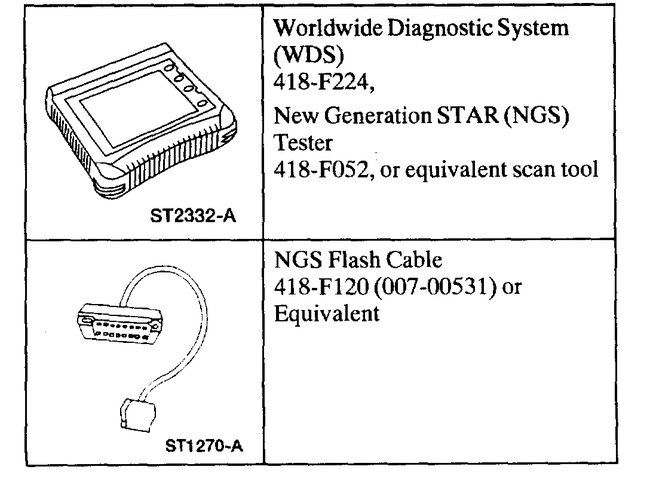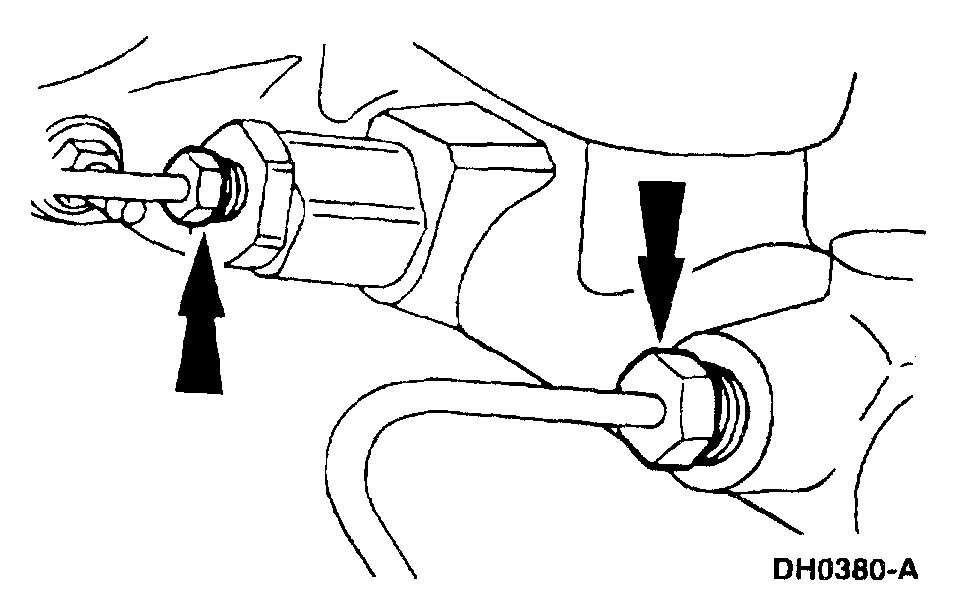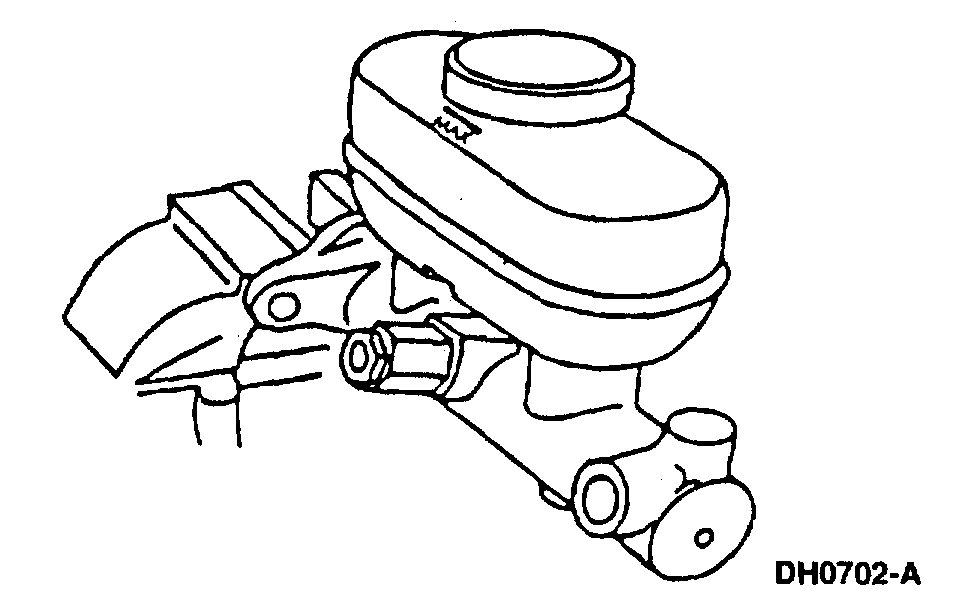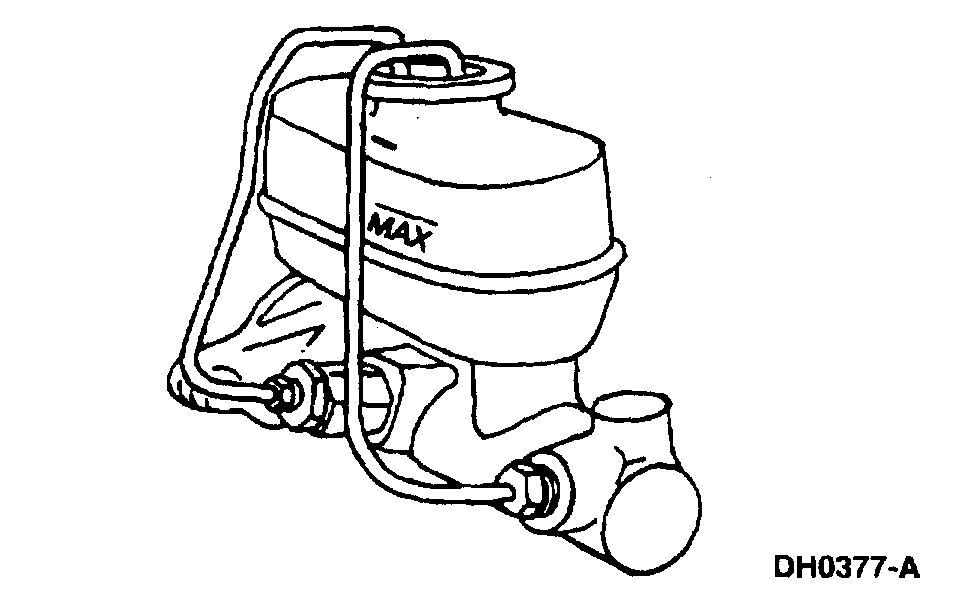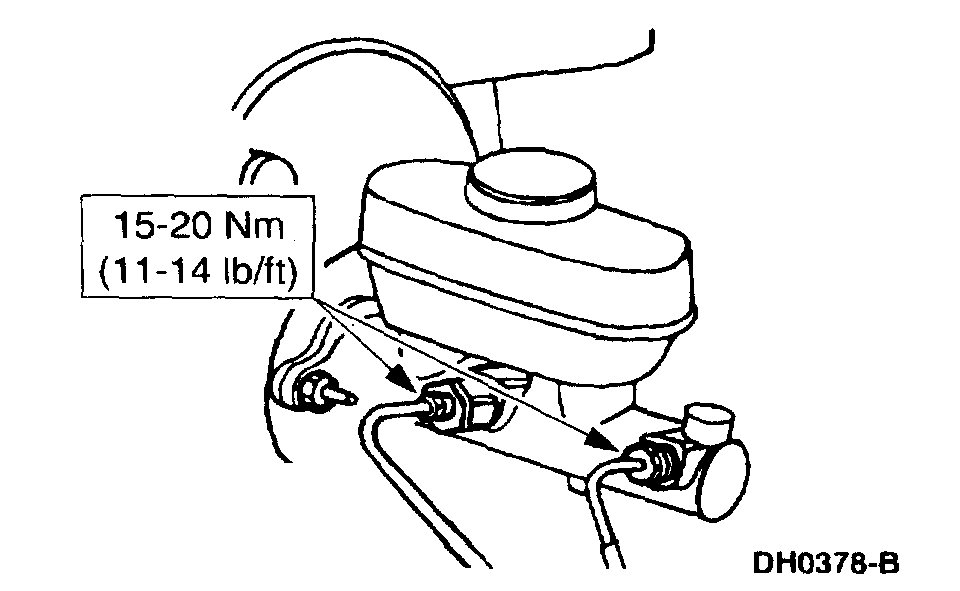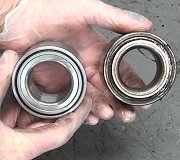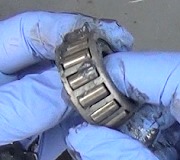Hi,
Are the rear brake rotors rusted? That would indicate the pads aren't making contact. As far as the master cylinder, if it wasn't replaced, bleeding shouldn't be an issue. There is a primary and secondary piston. Has the master cylinder been replaced?
Here are the directions for bleeding the master cylinder. Note that the directions show both in vehicle and out of vehicle bleeding. The attached pics correlate with the directions.
____________________________________________
2000 Ford Mustang V6-3.8L VIN 4
Master Cylinder Priming - In-Vehicle or Bench
Vehicle Brakes and Traction Control Hydraulic System Brake Bleeding Service and Repair Procedures Master Cylinder Priming - In-Vehicle or Bench
MASTER CYLINDER PRIMING - IN-VEHICLE OR BENCH
Special Tools
pic 1
WARNING: Brake fluid contains polyglycol ethers and polyglycols. Avoid contact with eyes. Wash hands thoroughly after handling. If brake fluid contacts eyes, flush eyes with running water for 15 minutes. Get medical attention if irritation persists. If taken internally, drink water and induce vomiting. Get medical attention immediately.
CAUTION: Do not allow the brake master cylinder reservoir to run dry during the bleeding operation. Keep the brake master cylinder reservoir filled with the specified brake fluid. Never reuse the brake fluid that has been drained from the hydraulic system.
CAUTION: Brake fluid is harmful to painted and plastic surfaces. If brake fluid is spilled onto a painted or plastic surface, immediately wash it with water.
Note: When any part of the hydraulic system has been disconnected for repair or installation of new components, air can enter the system and cause spongy brake pedal action. This requires bleeding of the hydraulic system after it has been correctly connected. The hydraulic system can be bled manually or with pressure bleeding equipment.
Note: When a new brake master cylinder has been installed or the system has been emptied, or partially emptied, it should be primed to prevent air from entering the system.
Pic 2
1. For in-vehicle priming, disconnect the brake lines.
Pic 3
2. For bench priming, mount the brake master cylinder in a vise.
Pic 4
3. Install short brake tubes with the ends submerged in the brake master cylinder reservoir, and fill the brake master cylinder reservoir with High Performance DOT 3 Brake Fluid C6AZ-19542-AB or equivalent DOT 3 fluid meeting Ford specification ESA-M6C25-A.
4. Have an assistant pump the brake pedal, or slowly depress the primary piston until clear fluid flows from both brake tubes, without air bubbles.
5. If the brake master cylinder has been primed at the bench, install it in the vehicle.
Pic 5
6. Remove the short brake tubes, and install the brake outlet tubes.
7. Bleed each brake tube at the brake master cylinder as follows:
1 Have an assistant pump the brake pedal, and then hold firm pressure on the brake pedal.
2 Loosen the rear most brake tube fittings until a stream of brake fluid comes out. While the assistant maintains pressure on the brake pedal, tighten the brake tube fitting.
3 Repeat this operation until clear, bubble-free fluid comes out.
4 Refill the brake master cylinder reservoir as necessary. Repeat the bleeding operation at the front brake tube.
____________________________________
Let me know if this helps or if you have other questions.
Take care and God Bless,
Joe
Images (Click to make bigger)
Thursday, March 11th, 2021 AT 5:37 PM
